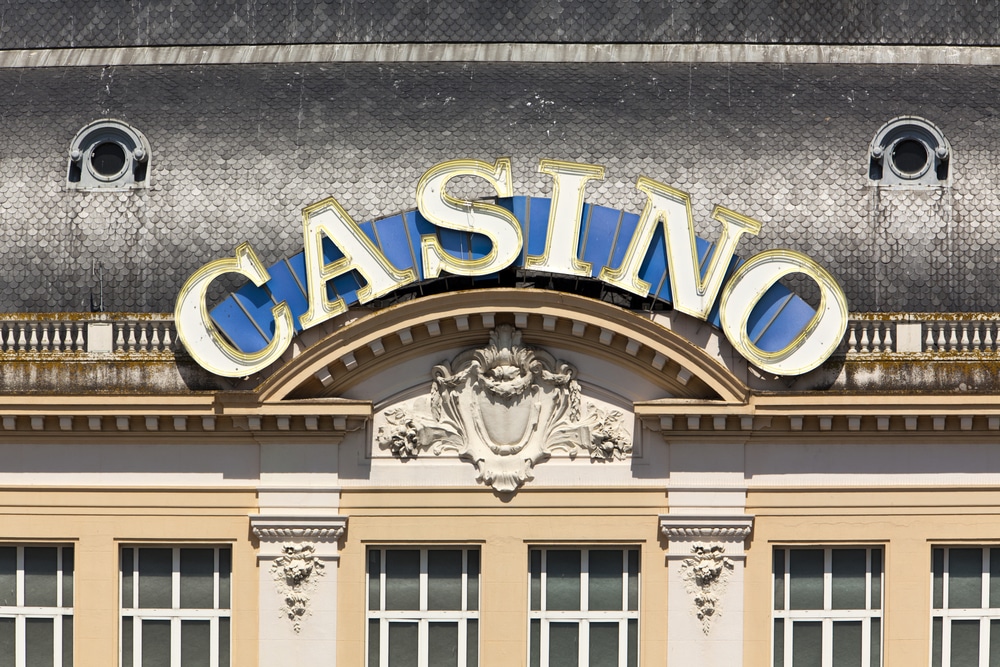
Gambling games have long captured the fascination of humans around the globe, becoming an important part of both leisure and society. From the glimmering lights of the Vegas Strip to the captivating experience of online gaming, these activities evoke thrill, risk, and sometimes even a sense of sentimentality. They are not just simply entertainments; they have woven themselves into the fabric of our lives, influencing everything from cinema and music to fashion and books. non GamStop casino
The allure of casino games goes beyond the gambling aspect, tapping into wider themes of fortune, risk, and human behavior. As players convene around a poker table or turn the roulette, they engage in an timeless ritual that connects with our shared desire for adventure and unpredictability. This captivation has led to the emergence of many references in movies, music, and gaming, showcasing how intensely entrenched these pastimes are in pop culture. Whether it is the intense drama of a traditional robbery film or the lively nightlife portrayed in recordings, casino games have carved out a substantial place that reflects our bond with risk and reward.
Cultural Importance of Gambling Activities
Gambling activities have played a key role in cultural aspects throughout history. Stemming from old civilizations, games of chance were often linked to rituals or events. For example, early iterations of gambling can be traced back to historic China and the Roman Empire, where dice games and betting on outcomes were popular pastimes. These activities not only functioned as entertainment but also as means of social interaction, facilitating connections among individuals within societies.
As cultures evolved, so did the complexity and structure of gambling games. The creation of formal casinos in the 17th century, particularly in Italy, marked a notable shift in how games were perceived and structured. With specific spaces for gambling, the casino became a social hub where people from different backgrounds gathered. This change contributed to the validation of the industry, transforming it from a mere pastime into an organized industry that shaped the economy and policy.
The impact of gambling activities on popular culture cannot be understated. As they were popularized in literature and film, games such as Texas Hold’em and blackjack became symbols of chance, chance, and strategy. Iconic figures and narratives have developed around these activities, illustrating societal attitudes towards fortune, prosperity, and vice. This interest with gambling games has infiltrated various forms of media, solidifying their place in the public imagination and connecting them to wider cultural narratives throughout the ages.
Portrayal of Gambling Games in Entertainment
Casino games have long been a popular subject in different types of entertainment, reflecting both the fascination and intricacies of gambling culture. Films such as Ocean’s Eleven and Casino Royale portray figures who navigate intense situations, showcasing not only the appeal of the gambling environment but also the methods and choices that come with playing popular games like poker and 21. These movies often dramatize the excitement of winning and the potential results of losing, encapsulating the dangers involved in betting.
Television shows have also explored the world of gambling activities, often integrating them into the storyline as a context for character development and tension. Shows like Las Vegas depict the stories of gambling employees and customers, highlighting the lively, often disorderly energy of the casino floor. Docuseries featuring intense betting contests further emphasize the appeal of casino games, drawing viewers into the drama and planning involved in each round. Through these depictions, media not only amuses but also stimulates conversations about fortune, expertise, and the nature of chance.
Video games have increasingly included gambling activities into their development, allowing players to simulate the experience of betting without financial exposure. Games within the realm of digital gaming often include virtual slots, poker, and other popular casino games, creating an interactive experience that mirrors real-life gameplay. These virtual portrayals make casino games accessible to a worldwide viewer base, appealing to both players who indulge and those who enjoy the excitement of simulation. As a consequence, the representation of casino games in entertainment continues to shape public perception and importance, highlighting their role in society and culture.
Effect of Gambling Activities on Communities
Gambling activities have a significant impact on communities, affecting multiple aspects of culture and social behavior. They often function as a venue for community engagement, where people gather to experience a shared experience. Casino trips with friends or trips to casinos become group events that foster connections and create shared moments. This collective aspect boosts the entertainment value of casino games, making them a favored choice for festivities and recreational pursuits.
Additionally, casino games have been depicted in countless movies, TV series, and literature, influencing perceptions and attitudes towards gambling and gaming. Icons like James Bond competing in baccarat or the intense poker scenes in films have embedded these games in the shared imagination. This representation often glamorizes the lifestyle associated with casino activities, attracting new players and impacting trends in both style and conduct. These representations can ignite curiosity and lead to a more profound investigation of the intricacies of gambling.
Nonetheless, there are also adverse implications associated with the widespread appeal of casino games. The temptation of quick monetary gain can lead to problem gambling and financial troubles for some people. The community must contend with these consequences, advocating for responsible gaming and awareness of the dangers involved. Balancing the fun aspect of gambling activities with the risks is crucial to ensure that they remain a positive aspect of our cultural landscape.
